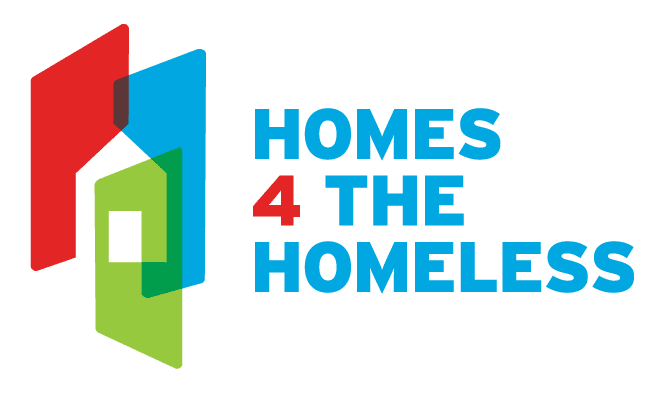As Rents Soar Past $3,400 For A One-Bedroom, Tech-Fueled Gentrification and Political Inaction Deepen Inequality Across the Bay Area
The average price of a 1-bedroom apartment in San Francisco has risen by 8% over the last year, with the city seeing the sharpest increases in rental prices among any major city in the US. An average one-bedroom apartment in the city now costs $3,400 per month.
According to a rental rate report by the rent tracking website Zumper, the monthly rental price for a 2-bedroom apartment in San Francisco has reached an all-time record high of $5,000 for the first time since the website began tracking data a decade ago. That marks an eye-watering 16.3% increase in price over the course of the last year.
The Rent is High Across the Country
Even at a median price of $3,400 a month, San Francisco is still not the country’s most expensive city for renters. That dubious honor goes to New York City, where a 1-bedroom apartment will cost you $1,000 more per month, for a total rental cost of $4,400.
Compared to those figures, the national average rental price for a 1-bedroom apartment may sound low at $1,520, but many people are struggling to pay even that much.
The rent is way too high, and the unmitigated greed of landlords and corporations is unsustainable. Homeownership has moved from a distant dream to a pipedream, leaving more and more people at the mercy of their landlords if they hope to stay housed. When local and state governments see rising rents as an economic boon, we need national legislation to protect the people.
The New Wave of High-Income Renters is Pushing Others Out
Alongside this surge in rental prices, we are also seeing a surge in eviction notices. The number of eviction notices served throughout San Francisco has nearly doubled in the last year alone and is now at the highest level seen since 2018.
As more and more tech workers are mandated to return to the office and local AI companies are spending millions to secure a single engineer (plus bonuses), the market is seeing an increase in people willing to pay for an entire year’s worth of rent up front or even make offers on apartments that far exceed the monthly asking price. Seeing these lucrative bidding wars intensify, more unscrupulous landlords may seek ways to evict current tenants in order to secure a higher profit.
Despite the citizens who are struggling to navigate this landscape, city politicians seem to be interpreting these events as an economic boon for San Francisco. Even though 30% of the city’s residents are rent burdened, spending more than 30% of their monthly income on housing, and 20% are severely rent burdened, spending more than 50% of their monthly earnings on rent, the city controller reported on the rise in rental costs as, “emerging as a bright spot for the city’s recovery.”
With AI companies leasing nearly 1 million square feet of the city, a figure that makes up about one-fifth of San Francisco’s total available office space, local leaders seem to be putting a lot of faith in this famously unstable industry.
Some Residents Are Disproportionately Affected
While very few San Francisco residents can afford to compete with the new influx of AI workers, who often receive multi-million-dollar annual compensation packages, the strain on the housing market is not affecting everyone equally. As is so often the case, the negative effects of these changes are affecting the city’s poorest people the most, as well as Black San Franciscans, Latino San Franciscans, and disabled San Franciscans. These groups have been priced out of the city at a disproportionate rate compared to the general population.
Disabled San Franciscans also face another hurdle to affordability in the form of California Governor Gavin Newsom’s proposal to limit access to Medi-Cal healthcare to those with less than $2,000 in assets at any given time. Obviously, someone who is not allowed to have more than $2,000 in their bank account would have a hard time paying a $3,400 rent, effectively forcing disabled Californians to choose between keeping their current homes and networks of support in the place they live or maintaining access to the healthcare they need to live.
And if you think it’s difficult to find a place to live in the current housing market, adding accessibility requirements makes it even more difficult still.
While Newsom’s proposal didn’t pass this time, California has instated an asset cap of $130,000 for individuals or $195,000 for couples, where none existed before. Not only does this put marriage out of the question for many disabled Californians, but it also effectively reminds everyone relying on Medi-Cal that their lives are in the hands of the state, which could choose to abandon them at any time.
AI Industry ‘Gives Back’ to Poor People It Displaced
By this point, you may think that rising rents and evictions into a hostile housing market are a recipe for increased homelessness, and you would be right. But don’t pass judgment too soon, because the AI industry that’s fueling this fire may also be able to provide a helpful solution!
Remember the ban on RV parking that’s going into effect in San Francisco? The city is testing a new AI chatbot to assist people who are once again being displaced from their only access to shelter. Doesn’t that make you feel better?
For a technology that struggles to accurately answer basic customer service questions or suggest recipes that won’t land you in the hospital, helping people navigate their legal rights in the face of impending displacement may be a bit too much to ask. But, like so many things in the tech industry, it may take a trail of human suffering before anyone in power stops to ask if they should do it just because they could do it.
